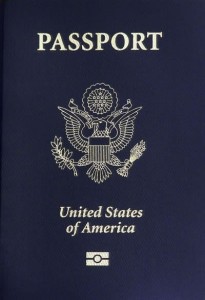I found this article from Bloomberg of interest. It centers on how the U.S. is struggling to keep up with surging demand for visas in China and Brazil, as the growing middle class in the world’s two biggest emerging markets flock to American shopping malls and tourist meccas. I can tell you that some friends of mine in the Miami luxury residential real estate market are having one of their best years selling to Brazilian buyers.
The U.S. plans to boost by 100 people this year its staff dedicated to processing visas in the two countries after it issued 35 percent more travel permits in China this year and 44 percent more in Brazil, Ed Ramotowski, managing director for U.S. visas, said in a conference call with reporters yesterday.
“It’s a function of the robust economy in Brazil,” Donald Jacobson, who oversees visa operations at the U.S. Embassy in Brasilia, said in the same conference call. “Their currency is very strong against the dollar and Brazilians are coming to America to visit Disney World and do lots of shopping.”
To promote job growth and welcome more visitors from the increasingly affluent countries, the U.S. hopes it can handle up to 4 million visa applications in the two countries by 2013, more than double the current amount, Ramotowski said. Together the two countries accounted for about 1.8 million of the 7.5 million visas issued last year.
Even as the U.S. and Europe try to fight off recession, growth in emerging markets is proving resilient, boosting the spending power of consumers in nations like Brazil and China.
Spending Splurge
Brazilians spent $16.1 billion on foreign travel in the year through September, up from $11.5 billion in the first nine months of 2010, as record-low unemployment and a currency that hit a 12-year high in July encouraged them to splurge abroad. Latin America’s biggest economy expanded 7.5 percent last year, the fastest in two decades, and will grow 3.8 percent this year, according to an International Monetary Fund forecast.
Growth in China, which was 10.4 percent in 2010, is expected to reach 9.5 percent this year, still about six times the pace for the U.S. and euro area, according to the IMF.
While consular staff in Brazil has doubled since 2005, and is expected to double again this year to 100, the U.S. has had to bring in Portuguese-speaking staff on temporary assignments to handle the flood of visa requests, Jacobson said. In October, more than 90,000 visas were issued, a 67 percent increase over the same month a year ago, he said.
About 160,000 of the 1 million visas issued last year in China were to students, who make up the largest foreign national group at American universities and colleges, Chuck Bennett, who runs consular operations at the U.S. Embassy in Beijing, also said in the conference call.
“One of our challenges in meeting demand both in Brazil and China is just that we don’t have enough Chinese and Portuguese speakers,” Ramotowski said.
